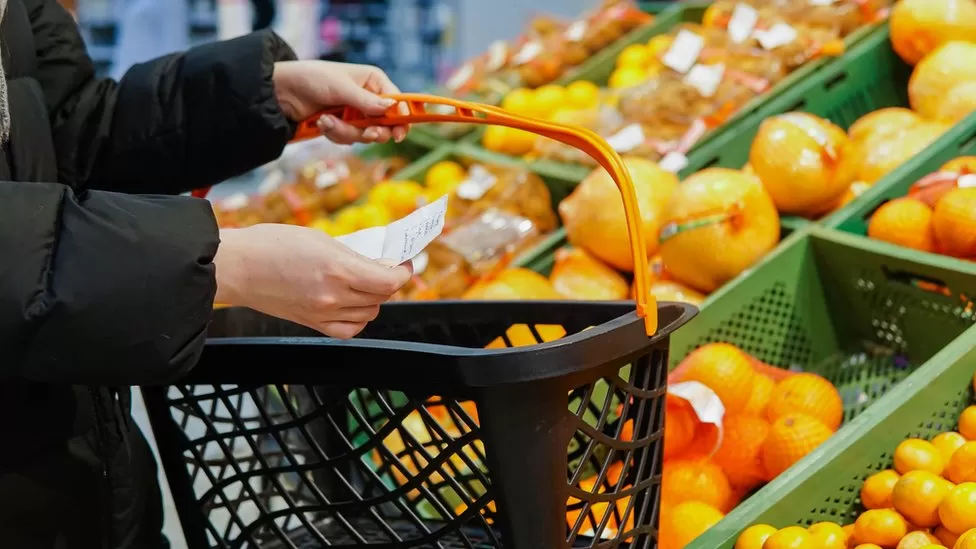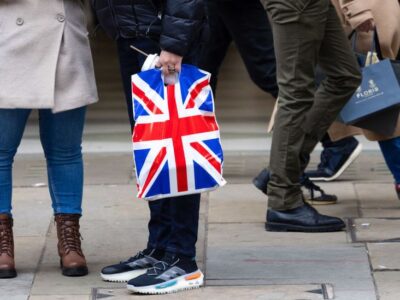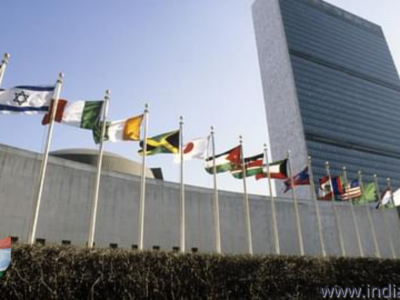Food prices in the UK continued to soar in April despite a drop in wholesale costs, new figures show. Food inflation jumped to 15.7% last month compared with April in 2022, up from 15% in March, the British Retail Consortium (BRC) said. But the cost of a food shop “should start” to come down in the next few months, the trade body claimed.
The BRC, which represents UK supermarkets, said customers would see savings on milk and other dairy goods. Last week, Sainsbury’s rejected suggestions that prices were too high after the BBC heard that falls in global food prices were not being reflected on supermarket shelves. But Helen Dickinson, chief executive of the BRC, said customers should “start to see food prices come down in the coming months as the cut to wholesale prices and other cost pressures filter through”. She said that retailers were “committed to helping their customers and keeping prices as low as possible”.
Many households have felt the impact of rising food bills. Due to cost pressures, major consumer goods companies and supermarkets have pushed up prices, but have denied “profiteering”. While overall food inflation rose in the year to April, according to the figures from the BRC-NielsenIQ shop price index, fresh food prices accelerated last month to 17.8%.
Ms Dickinson said some goods, such as ready meals, had risen in price because of a “knock-on effect from increased production and packaging costs”. She added the price of coffee had jumped because of an increase in the cost of coffee beans, as well as key producers exporting less. However, she said the price of select items like butter or vegetable oils had already started to come down as retailers passed on some savings.

Wholesale food prices have started to fall and the World Bank, which works on solutions to reduce poverty in developing countries, has said it expects them to drop 8% by the end of this year. But supermarkets have argued such falls take time to reach the shelves. The BRC has said there is a three- to nine-month lag to see a decrease in wholesale prices reflected in-store. In March, the union Unite accused some retailers of “fuelling inflation by excessive profiteering”.
The boss of Sainsbury’s said the supermarket would pass on any falls in the price of goods as soon as it could and was “absolutely determined to battle inflation for our customers”. However, Simon Roberts admitted widespread price falls were not likely to come soon as energy and labour costs continued to rise.
While overall food prices continued to rise in April, the BRC said inflation, which is the rate at which prices rise, both food and non-food, had fallen marginally to 8.8% in April. But just because the inflation rate has fallen, that does not mean prices are falling, it just means that prices are not rising as quickly. The BRC said overall price rises in the shops had slowed slightly in April because of “heavy spring discounting in clothing, footwear, and furniture”.
![]()





